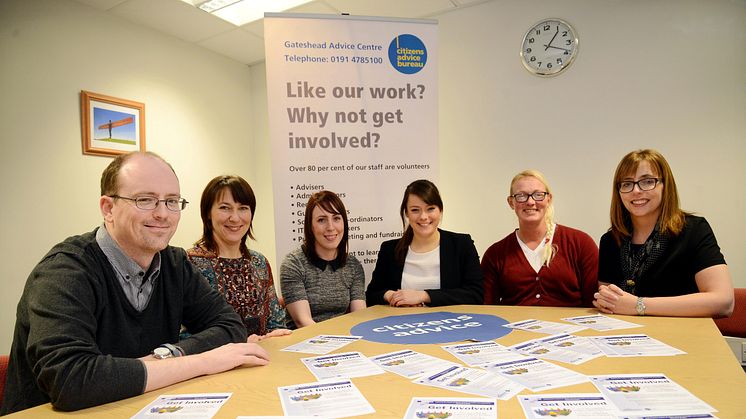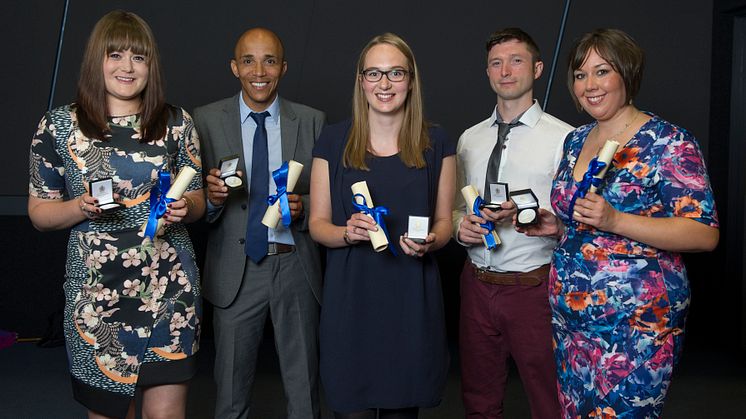
Press release -
Does the Citizens Advice Bureau help to reduce stress?
Researchers from Northumbria University are to take part in an innovative study examining the impact the Citizens Advice Bureau can have on people’s health.
The Citizens Advice Bureau is a charity that offers free advice and information to help people with their financial, legal, consumer and other problems. As well as helping clients with the problems they face, advisors also aim to improve the policies and principles that affect people’s lives.
The research team will work with the Gateshead Citizens Advice Bureau to evaluate how the advice services offered help to improve people’s health. They aim to review, develop and improve data recording systems during the 18-month study to ensure that they capture the impact that using the service has on health, particularly on stress and anxiety levels.
Senior Research Assistant, Natalie Forster, explained: “People using Citizens Advice Bureaux tend to be worrying about certain issues and, as a result, often suffer from stress and anxiety. While the service is very efficient at capturing data about how they support clients, there is currently little or no data on the subsequent impact that accessing advice can have on people’s health.
“We believe that we will find that there has been a positive impact on individuals’ health and behaviours, following advice from the Bureau, particularly in relation to stress, anxiety and mental health. Stress can have serious consequences on health so if we can prove that this service is having a positive impact on stress levels then we can prove that it is having a wider benefit to society than previously acknowledged.”
The £150,000+ project is supported by Fuse, the Centre for Translational Research in Public Health, a virtual research centre that brings together staff and students from the North East’s five universities. It is funded by the National Institute for Health Research’s School for Public Health Research which works to build an evidence base for effective practice in public health with the aim of improving population health and reducing health inequalities.
Susan Carr, a Professor of Public Health Research at Northumbria University and Associate Director at Fuse, added: “Advice services are complex support channels which are highly tailored to the specific needs of individuals and are often delivered in conjunction with other services. Establishing direct evidence for their impact on health has therefore been challenging.
“This project will enable us to unpick the different kinds of support and resources offered by advice services to examine how they might impact on health and those contexts in which they are most likely to lead to health improvement. We expect that the study will produce transferable findings about the benefits of advice services on public health which will be relevant to commissioners, researchers and service providers.”
For more information on Northumbria University’s work in Public Health and Wellbeing, visitwww.northumbria.ac.uk/publichealth
Topics
Categories
Northumbria is a research-rich, business-focused, professional university with a global reputation for academic excellence. To find out more about our courses go to www.northumbria.ac.uk
If you have a media enquiry please contact our Media and Communications team at media.communications@northumbria.ac.uk or call 0191 227 4571.











